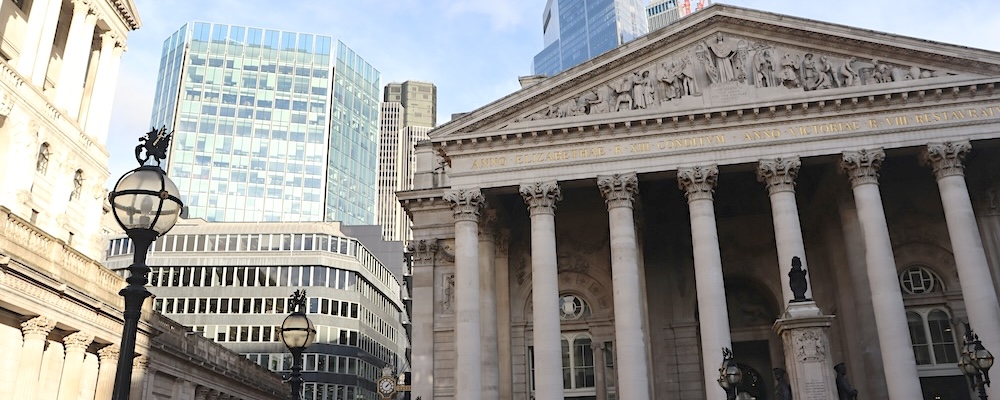
What the cut in interest rates could mean for SMEs and their investors.
With a new Labour government and a somewhat fragile economic recovery in place, there are echoes of Tony Blair’s nineties and noughts in our midst. However, while there may be parallels to times gone by, it does not mean that businesses and investors should assume policy or circumstances will play out in the same way as before. There is a lot of speculation as to what this environment means, but what are the potential implications and opportunities for SMEs and their investors?
The UK’s big economic picture
It has been widely reported that the last two quarters have shown tentative signs of economic recovery after the challenges of recent years and a shallow recession at the end of 2023. This month the Bank of England (BoE) lowered its base rate to 5% in the first cut since March 2020, following a fall in inflation to the 2% target set by The Monetary Policy Committee (MPC) in June.
Despite a slight rise in inflation in July to 2.2%, jobs and wage growth have largely been holding up, and the UK’s economy grew by 0.6% between April and June, making the UK the second-best performer among G7 nations. Therefore, there is still an expectation that the base rate may be cut further, perhaps as early as September. This is reflected in the markets pricing 100 bps of cuts by June 2025.
The forecast for interest rates
In its August Monetary Policy Summary, the BoE wrote:
“The Monetary Policy Committee (MPC) sets monetary policy to meet the 2% inflation target, and in a way that helps to sustain growth and employment. The MPC adopts a medium-term and forward-looking approach to determine the monetary stance required to achieve the inflation target sustainably. At its meeting ending on 31 July 2024, the MPC voted by a majority of 5–4 to reduce Bank Rate by 0.25 percentage points, to 5%. Four members preferred to maintain Bank Rate at 5.25%.”
Although more recent inflation figures show a small increase, which is expected to continue – largely because energy prices are not falling as quickly as last year – they are slightly below economists’ forecasts. While things are improving, there is uncertainty as to where interest rates will be in the coming months as they will depend on the inflation path.
What could this mean for investors?
As things stand, returns on secondary corporate bonds, t-bills and gilts are beating inflation by 2-3%, with higher yields achievable through high yield bonds or issues of medium-term note programmes by SMEs. This gives investors the opportunity to extend their portfolios over a number of different companies with varying ratings and maturities to lock in a return that is well above current and predicted inflation rates. It also allows you to construct a diversified portfolio which has ‘natural’ liquidity from interest payments and redemptions. As capital and interest is paid, investors can re-invest in new issues in order to compound returns, which Einstein wisely referred to as the eighth wonder of the world.
With this context in mind, a weekly bond list is available on the LGB Deal Hub, providing indicative offers and information about secondary corporate bonds from relatively well known corporate names in GBP, EUR and USD. If you are signed up as an LGB investor, you may wish to consider these for your laddered fixed income portfolios and/or ISA portfolios. Investors signed up to the LGB Deal Hub will also be notified when new MTN issues are open for subscription.
Find out more about LGB & Co’s investment approach
What could this mean for SMEs?
Although the current environment means borrowing costs for SMEs are high relative to the 10-year average, it is unlikely they will reduce significantly in the short- to medium-term. SMEs looking to invest and grow will require regular access to funding and the LGB’s medium term note (MTN) programmes could offer a flexible solution worth considering. By having an MTN Programme, SMEs are able to access private capital from a diversified pool of investors efficiently, for the right amounts as and when required, through the issuance of fixed income securities. If interest rates do come down over time, the interest rates on new issuance can be adjusted accordingly. Equally, as its credit standing improves, a company can expect investors to commit on improved terms.
Find out more about fundraising with LGB Capital Markets
Balancing goals and the economic environment
Broadly speaking, in this environment it is more important than ever for companies to have the ability to raise finance efficiently and opportunistically. With the current strong appetite from investors to lock in fixed returns in order to beat inflation and the unpredictability of the equity markets, looking at private capital is an option SMEs should explore. Investors should ensure that their fixed income portfolios balance their individual needs for cash flow and liquidity and appetite for risk. A laddered portfolio with a buy-and-hold strategy ensures that they can predict a consistent return no matter what interest rates may do over the next few years as the new Labour government is settling in.
To find out more about investing or raising capital with LGB&Co. Contact our team













